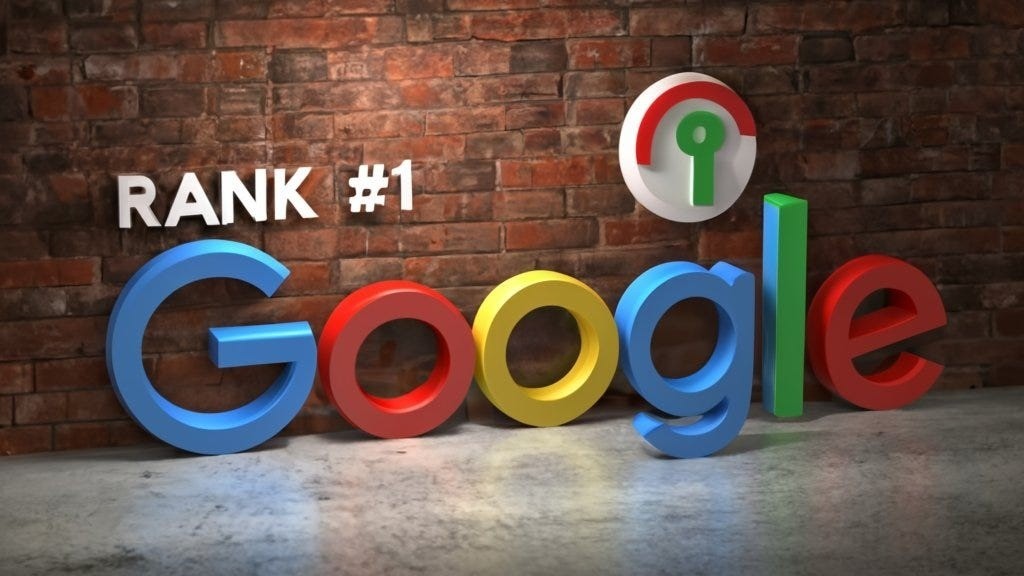If you’ve ever built a website, you know that attracting visitors can be just as challenging as creating it. This is where SEO (search engine optimization) comes in. SEO refers to improving your website to improve its ranking in Google and other search engines. This makes it easier for people to find your content.
In 2025, with millions of websites vying for your attention, SEO is more important than ever. The good news is that anyone can learn the basics and progress. To help you improve your website’s Google ranking and grow your online presence, this book breaks SEO down into easy-to-follow steps.
What is SEO? Why is it important?
SEO is the process of improving your website so search engines can find it more easily. When people search for content related to your site, they should be able to easily find your pages. If your site ranks higher, people are more likely to click on your site instead of your competitors’.
Organic traffic is the reason why SEO is so important. Organic business growth, on the other hand, is free and can be sustained over time. Once your pages rank well, they can bring you daily visitors without having to pay for ads. If you’re new to SEO, you need to build trust with your visitors and search engines for the long term.
Keyword research is the foundation of SEO
Keyword research is the first step in any SEO plan. Keywords are the words and phrases people type into Google to find content. By targeting the right, popular keywords, your content is more likely to meet people’s needs.
First, consider topics related to your niche. Then, use Google Keyword Planner, Ahrefs, or Ubersuggest to find useful, frequently used, and low-competition keywords. Long-tail keywords—longer, more specific keywords like “best budget smartphones under $300” instead of simply “smartphone”—are the best starting keywords.
Choosing the right, popular keywords helps you write content that people are actively searching for.
On-page SEO (SEO): Improving Your Content
After you’ve identified your keywords, the next step is on-page SEO (SEO). This means adapting your website so search engines can better understand your content.
Make sure your primary keywords are easily found in the title, meta description, headings, and throughout your content. But don’t overload your content with keywords; this can impact your search results and make your content less clear. Instead, focus on writing content that is useful, interesting, and answers users’ questions.
Using informative URLs, adding internal links to linked pages, and adding alt text for images are other factors in on-page optimization. These small details may seem insignificant on their own, but together they form a solid foundation for SEO success.
What does high-quality content do for you?
Google’s primary goal is to provide users with the best solutions. In other words, SEO revolves around high-quality content. If your content is useful, unique, and engaging, it will easily attract more users, shares, and backlinks, all of which positively impact your results.
When you’re just starting out, focus on writing content that helps real users. Don’t write for search engines; write for people who will actually read your content. Use a lighthearted tone, break big ideas into simple explanations, and maintain a clear structure with clearly defined paragraphs and headings.
Remember: good content builds trust, and SEO is based on trust.
Technical SEO: Making Your Website Search Engine Friendly
Technical SEO may sound intimidating, but it refers to the things that happen behind the scenes to make it easier for search engines to crawl and analyze your website. Here are some key points:
- Site Speed: If your website takes too long to load, users will bounce and your rankings will drop. You can use tools like Google PageSpeed Insights to speed up loading times.
- Mobile-Friendliness: Since most searches are performed on smartphones, your website should be mobile-friendly.
- Secure Connection: Google prefers sites that use HTTPS, so make sure your website has an SSL certificate.
- Small adjustments to the technical operation of your website can have a significant impact on search engine rankings.
- Building Backlinks: Basic Principles of Off-Page SEO
Users who visit other websites and link to yours are similar to voters who view your content.
Progress
SEO isn’t a one-time job; it’s a never-ending process. You need to track your progress and understand what’s working. You can use tools like Google Analytics and Google Search Console to closely monitor traffic, search engine results, and user behavior.
By reviewing this information, you can understand which pages are performing best and which need improvement. Long-term SEO success comes from adjusting your plan based on real information.
Mistakes Beginners Should Avoid
Many beginners make the mistake of looking for easy fixes, such as overusing phrases or using ineffective backlinks. Even if these practices help in the short term, Google often penalizes sites that do so.
Ignoring user experience is another common mistake. No matter how well-optimized a website is, if it’s difficult to use or has too many pop-ups, people will bounce. Finally, don’t expect immediate results. It often takes months of SEO work to see significant changes. Patience and perseverance are crucial.
Frequently Asked Questions
Q: How long does it take for SEO to yield results?
SEO is a long-term plan. Most websites see results within 3 to 6 months, but the exact timeline depends on competition and workload.
Secondly, do I need to hire an SEO expert to achieve success on Google?
Not always. Experts can accelerate results, but beginners can also achieve success by learning the basics, creating high-quality content, and persevering.
3. How many keywords should each page contain?
Each page should target one primary keyword and include a few related secondary keywords to stand out. This helps Google understand your content and stay on-topic.
4. Does social media help with SEO?
While social media tags don’t directly impact your rankings, sharing your content on social networks can increase its visibility and generate more backlinks, which indirectly improves SEO.
5. Will SEO still be relevant in 2025?
Of course. SEO remains one of the best and most cost-effective ways to generate steady, free traffic (instead of paid advertising).
Summary
SEO may seem tricky at first, but as long as you understand what you’re doing, even absolute beginners can make real progress. By researching the right keywords, optimizing your on-page content, making technical improvements, and building backlinks, you can gradually improve your ranking in Google search results.
Remember that SEO isn’t just about formulas; it’s about giving real users what they want. If your website truly helps users, search engines will reward you over time.
Starting in 2025, achieving a good Google ranking requires more than a few quick tricks. You need to build trust, authority, and relevance. If you start small and persevere, your website will grow into a powerful online presence.

